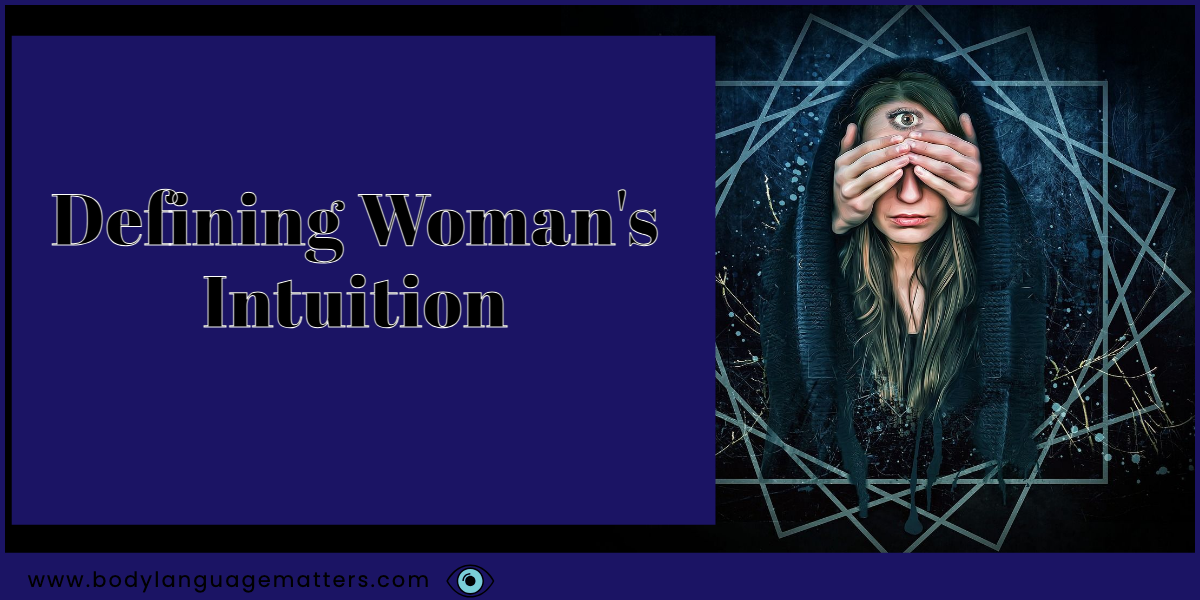So what exactly is intuition? Ah, the elusive “female intuition”—a term often cloaked in mysticism and generalizations. Intuition is a complex cognitive process. It’s an ingrained part of the female experience, often attributed to a strong sense of gut instinct or an inner voice whispering wisdom. Women are frequently said to be better at reading cues, leading many to wonder if this intuitive prowess is a gender-specific trait.
Innate Ability or Learned Skill?
Is this intuitive nature something women are born with, or is it cultivated over time? The answer is—it’s a bit of both. Intuition relies on a combination of past experiences and external cues to make a decision. It’s like the brain is constantly processing information so fast that the reaction is at an unconscious level, making rapid, in-the-moment decisions.
Imagine this: Picture early humans evolving on the vast savannah, where men had to venture out for hunting, leaving women and children vulnerable at home. In this scenario, women had to be constantly vigilant, skillfully spotting any potential threats while the men were away and unable to provide protection.
It highlights the essential role that women played in ensuring the safety and survival of their community during those times. These skills have transitioned over thousands of years and are now recognized as integral to womanhood simply known as woman intuition. Could this be known as a woman’s intuition?
Dispelling the Myth: Lack of Scientific Evidence
There’s a glaring lack of scientific evidence to definitively say whether intuition is a uniquely female attribute. The British Journal of Psychology defined intuition as the ability to instantaneously evaluate situations, which both men and women can do. Therefore, any claims that women are better than men in this area often stem from societal beliefs rather than empirical data.
Understanding Intuition: A Psychological Perspective
The Journal of psychology defines intuition as a potent blend of pattern recognition and experience, seasoned with emotional intelligence. Researchers have found that women are particularly effective at linking perception with action, which plays a large role in intuition. In simpler terms, it’s like having a powerful tool at your disposal, capable of sensing danger or another person’s emotional state.
Factors Influencing Woman’s Intuition
Empathy and Emotional Awareness
Women’s intuition often centers around emotional attunement and enhanced sensitivity to non-verbal cues like facial expressions.
Socialization and Communication
From nurturing roles to complex social dynamics, women have developed communication patterns that make them more in tune with emotional intelligence.
Evolutionary Biology
Evolutionary advantages, such as caregiving roles and survival instincts, may have endowed women with a heightened intuition to better protect their offspring from potential threats.
The Neurological Underpinnings
Brain Structure and Connectivity
MRI scans reveal that neural connections in the female brain facilitate intuition. Neurotransmitters in the gut can respond to environmental stimuli and emotions, sending signals to your brain.
Hormonal Influences
Estrogen impacts cognitive processes, creating a hormonal environment conducive to intuition. Research indicates a correlation between hormonal fluctuations and intuitive capabilities.
Cultural and Societal Influences
Societal Expectations and Norms
Cultural narratives and gender roles can often reinforce women’s intuitive abilities, regardless of whether this means subscribing to old ideas about women.
Media and Popular Culture
Media portrayal further fuels the mystique around “women’s intuition,” affecting individual perception and expectation.
The Complex Relationship Between Intuition and Rationality
Intuition and rationality can be complementary rather than contradictory. It’s about balancing intuitive insights with conscious reasoning for effective decision-making.
Harnessing and Honing Intuition
Trusting intuition wisely involves differentiating it from bias or assumptions. Mindfulness and self-awareness can strengthen your intuitive signals.
Debunking Common Misconceptions
Universality of Intuition
Intuition isn’t a one-size-fits-all concept. It varies among individuals, transcending gender stereotypes.
Intuition and Supernatural Beliefs
Intuition is not a form of the supernatural or paranormal. Promoting a scientific understanding of intuition is key to dispelling myths.
You may also like
Frequently Asked Questions
What is women’s intuition?
Women’s intuition, also known as gut feeling or sixth sense, refers to the ability of women to have a sense of knowing or feeling that something isn’t right or that something is trying to tell them something.
Why is it called “women’s intuition”?
It is called “women’s intuition” because it is often associated with women and is believed to be more developed in women compared to men.
How does women’s intuition work?
Women’s intuition happens when the brain draws on past experiences, internal and external cues, and synchronicity to create a sense of knowing or feeling. It is a subconscious process that happens so fast that it may seem like a gut feeling or intuition.
Can men have intuition too?
Yes, men can also have intuition, although it is often referred to as gut feeling rather than women’s intuition. The ability to draw on internal cues and subconscious processes is not limited to a specific gender.
Why are women believed to have better intuition?
Women are believed to have better intuition because they are generally more in touch with their emotions and are more likely to trust their intuition. However, it is important to note that intuition can vary from person to person, regardless of gender.
How can women strengthen their intuition?
Women can strengthen their intuition by practicing mindfulness, listening to their gut feelings, and paying attention to their internal cues. It is also recommended to trust and act upon their intuition when something feels off or when their intuition is telling them something.
Can intuition be explained scientifically?
While intuition is still a subject of scientific research, some studies suggest that intuition happens when the brain processes information at a subconscious level, drawing on past experiences and internal cues. However, the exact mechanisms and processes are still not fully understood.
Is women’s intuition always accurate?
Women’s intuition is not always accurate and should not be relied upon as the sole basis for making important decisions. It is essential to consider other factors, such as logic and evidence, when making decisions.
Can intuition be developed with practice?
Yes, intuition can be developed with practice. By actively listening to and trusting their intuition, individuals can become more in tune with their subconscious processes and improve their intuition over time.
Can women teach their intuition to others?
While women can share their experiences and insights with others, intuition is a personal and subjective experience. Each individual’s intuition is unique, and it cannot be directly taught or transferred to others.
Final Thoughts
In closing, the intuition of a woman is a multi-faceted phenomenon, shaped by a plethora of factors ranging from neurological to societal. It’s not just a buzzword but a complex interplay of instincts, emotions, and cognition. Trusting this intuitive prowess while also applying rational thought can lead to more enriched experiences and informed decisions.

